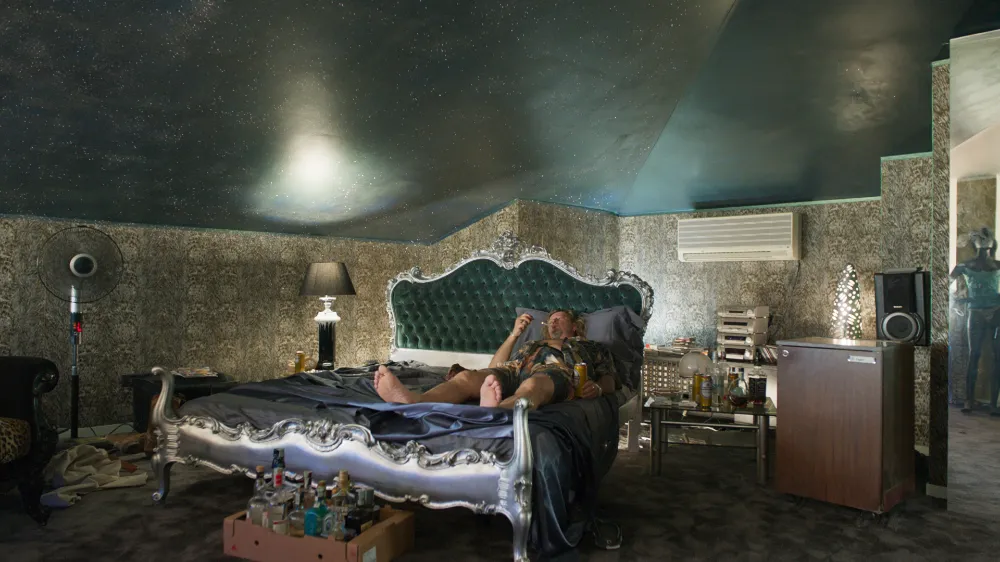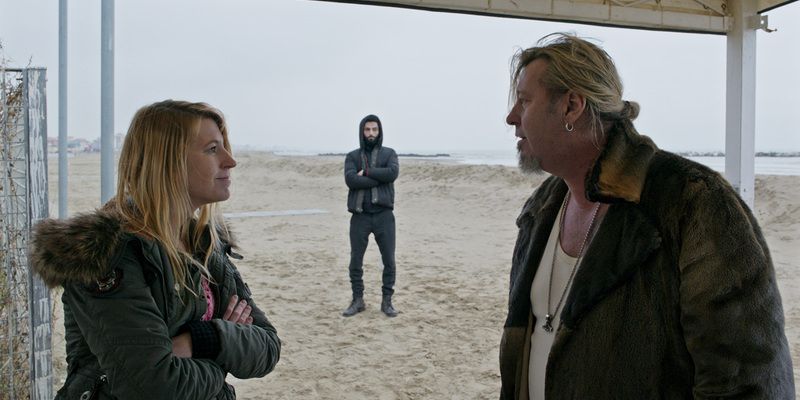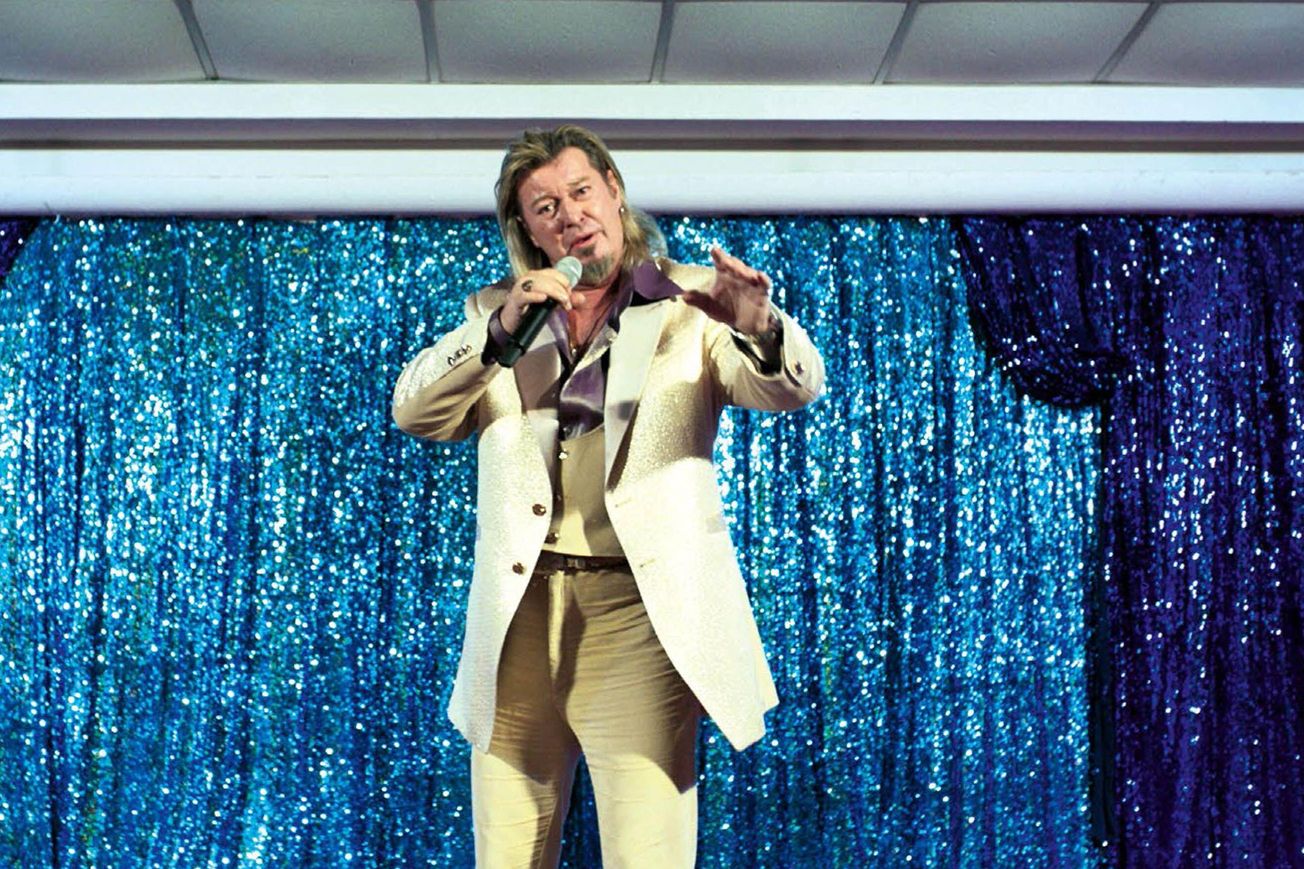By Nina Vekua, MA Film and Television
Rimini is the first film of Ulrich Seidl’s diptych, focusing on former pop idol Richie Bravo’s life, followed by Sparta (2022), which concentrates on his brother, Ewald, which was released slightly later this year premiering in San Sebastián International Film Festival.
During the off-season, in the slightly deserted snowy landscape of Rimini, where lots of budget Austrian tourists find themselves spending time, Richie Bravo, a lounge singer, whose days of glory are way behind him, performs his one-man shows and sometimes earns on the side providing additional services to some of his elderly lusty female fans.

Everything gets slightly more complicated when he is confronted by his fully grown and long-estranged daughter Tessa, who he has not seen in 18 years and even tries to hit on, not recognising her initially. As a moral compensation for all the missed birthday gifts and cars and flats that fathers, in her opinion, are supposed to provide their kids with, Tessa demands 30,000 euros.
In order to make the right choice and make amends, Richie tries to get her what she wants, even if that means ripping off his own death and, most of the time, hardly conscious father. The moral downside of his actions does not seem to concern Richie too much. He is hardly what you'd call a self-critical person.

Seidl, at times, shows very little compassion for his hero or anti-hero, which perhaps is a more suitable term in this case. Everything he does is bluntly selfish and yet not self-aware. The bottom line of the film is very much in brand: ‘He sells sexy time by the seaside’. Nevertheless, there is hardly anything sexy in the repulsively explicit and blatant spectacle which we are drawn into.
Rimini (2022) was first presented to the audience as part of the competition at the Berlin International Film Festival, but other than that was mostly screened exclusively on various festivals and only premiered at the theatres in the UK at the beginning of December, for a very limited time.

Seidl co-wrote the screenplay with his frequent collaborator and spouse, Veronika Franz. For the director, fiction is an unusual form, as he mostly has been working on documentaries, yet the film fits perfectly within his usual style, which would be visible to those who have seen his other works.
Seidl is known for unapologetically diving into uncomfortable topics and showing in detail the most unappealing things imaginable.
There is almost something empathetic in the way Seidl maliciously investigates the most flawed and disgraceful of people's lives. It’s as if he is saying: this might be ugly, but it is also very human and for that only, however repelling the spectacle is, you do not hate the characters but, on the contrary, cannot help but feel for them.
Featured Image: Courtesy of Urich Seidl FILMPRODUKTION / Berlin Film Festival
Will you be tuning in to watch this two-part film?








